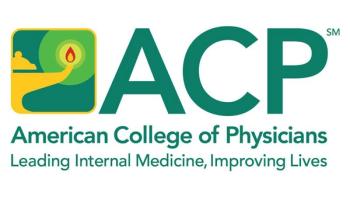
Q&A: Ella H. Leung, MD, explains the economic impact of anti-VEGF prior authorization process
Modern Retina had the opportunity to speak with Ella H. Leung, MD, at the 2025 scientific meeting of the American Society of Retina Specialists (ASRS). This event was held in Long Beach, California, from July 30 through August 2, 2025. Leung gave a presentation at this meeting titled, "Economic impact of anti-vascular endothelial growth factor prior authorization process."
In an interview, Leung shared some insights from this presentation and how the prior authorization of anti-VEGF treatments can actually hinder treatment and have a negative economic impact on patients, practices, and insurance providers.
Note: The following conversation has been lightly edited for clarity.
Modern Retina: You are presenting on the economic impact of anti-VEGF prior authorizations. What does the research tell us about this impact?
Ella H. Leung, MD: We all know from prior studies that there's a pretty high approval rating for prior authorization requests, which means, for the most part, physicians are requesting anti-VEGF for on-label, FDA-approved indications, but the whole process does result in significant delays and significant burden for our office staff and the patients. So what we wanted to find out was, well, "what is actual economic impact?"
What we found was that, basically, there's a huge cost to the workplace, to the patients. They're the ones should learn the greatest cost for all these prior auths, but the physicians and even the insurance companies actually do have costs in the average case as well. So the entire prior authorization process, we did not find was actually cost saving to society. It was not cost saving to the workplace. It was not cost saving to our patients. It was not cost saving to the physicians, and in the average case, even the insurers had an increased cost. Only in the least expensive scenarios could the insurance companies actually potentially save money from the prior authorization process.
MR: How can this help providers or organizations advocate for more cost-efficient processes in the future?
Leung: I think by understanding how much it's really affecting our patients and our physicians and society, it presents an opportunity for us to advocate more for reducing the burden of these prior auths. And so recently, CMS and Department of Health and Human Services announced that they're going to try to work with insurers to try to decrease these costs, and this burden for our patients and for our staff. So hopefully, we're really hoping that works.
I just want to give a special thank you to my co-authors and to the ASRS Health Economics Committee for all of their hard work [in this research].
Newsletter
Keep your retina practice on the forefront—subscribe for expert analysis and emerging trends in retinal disease management.




























